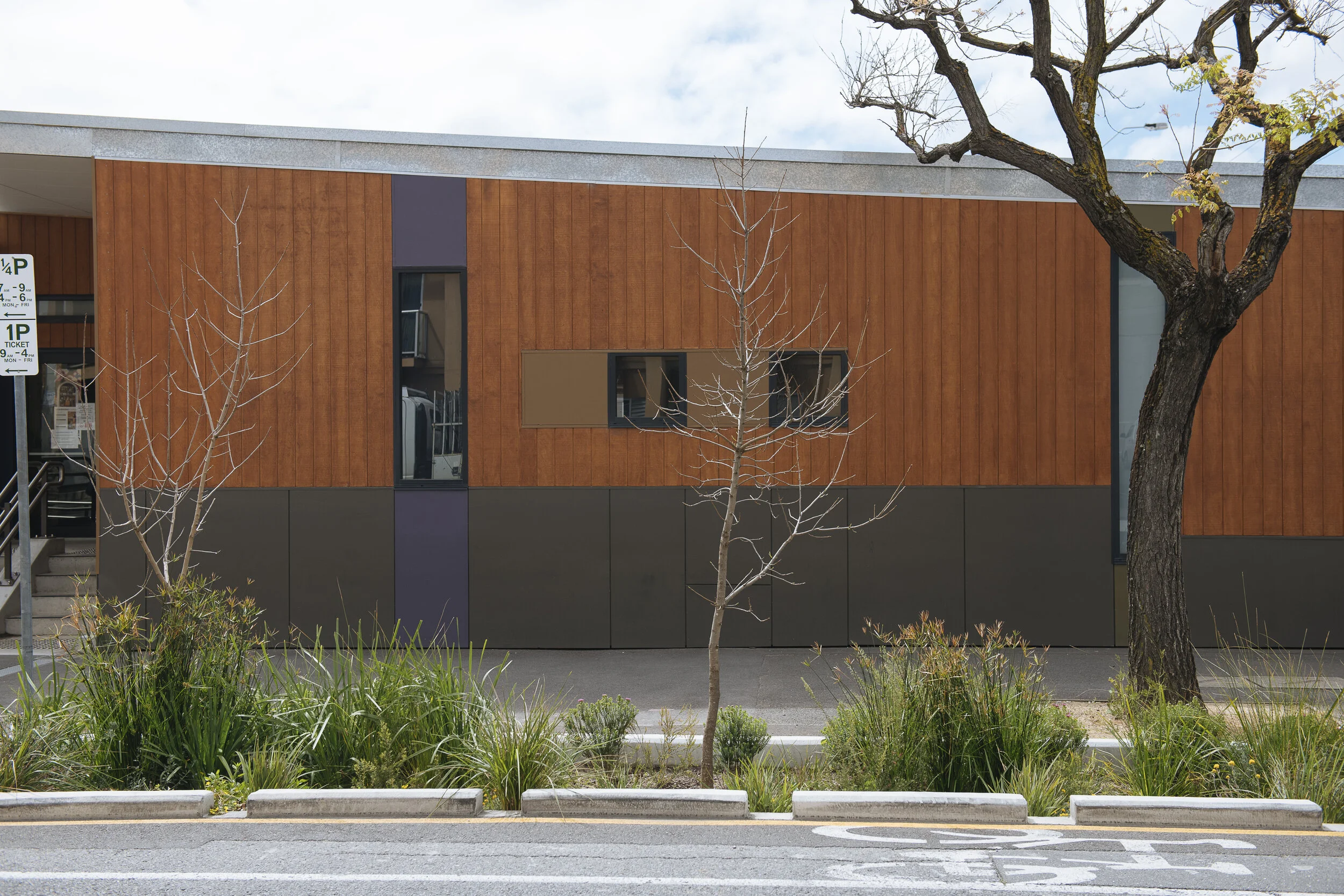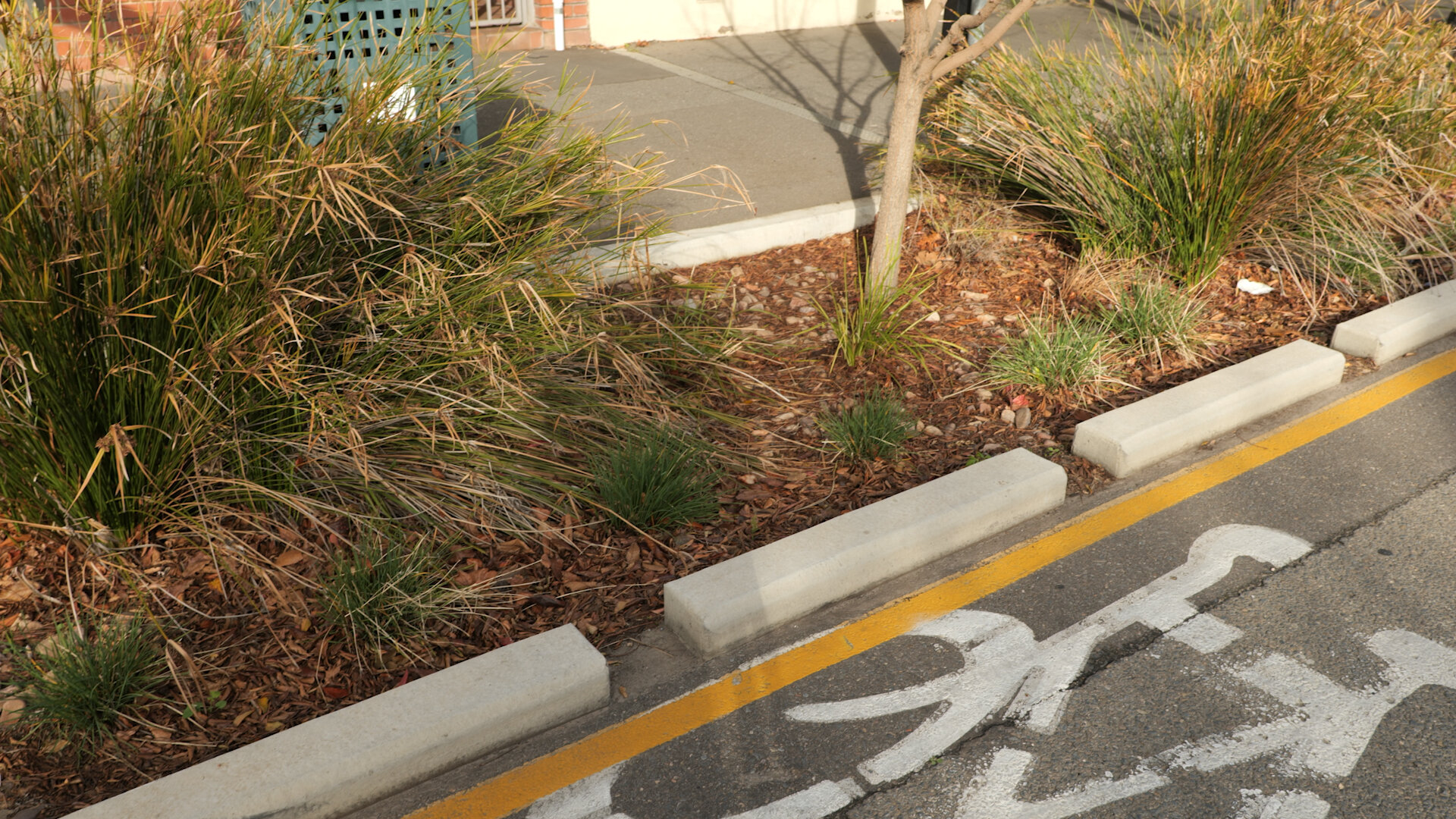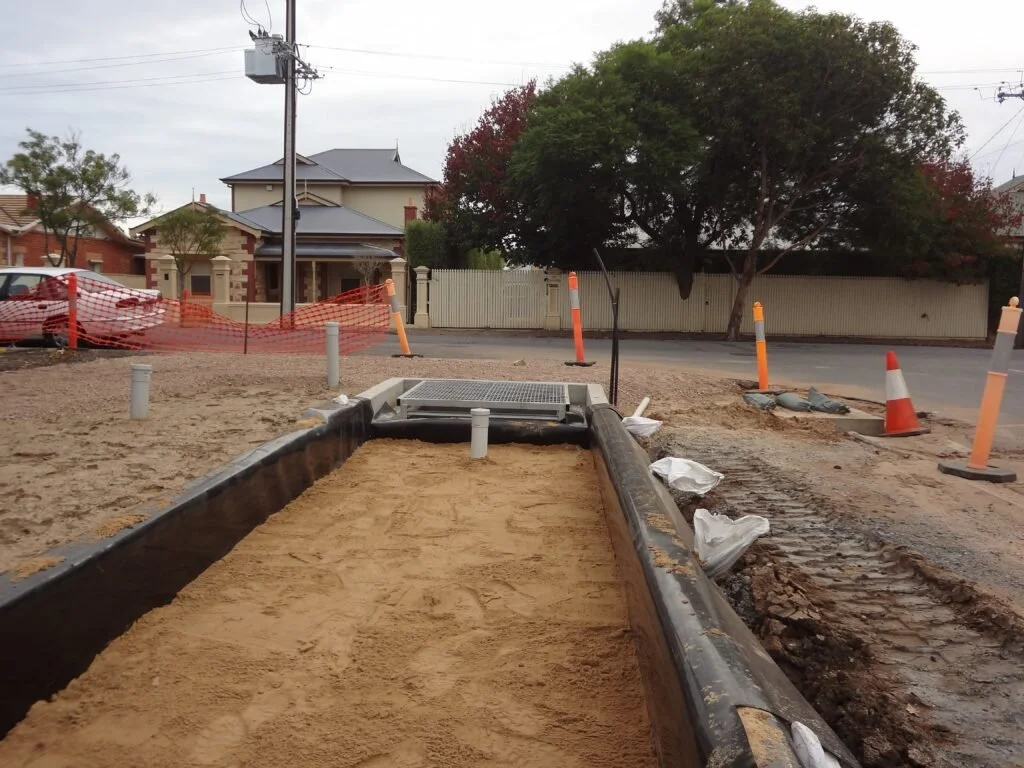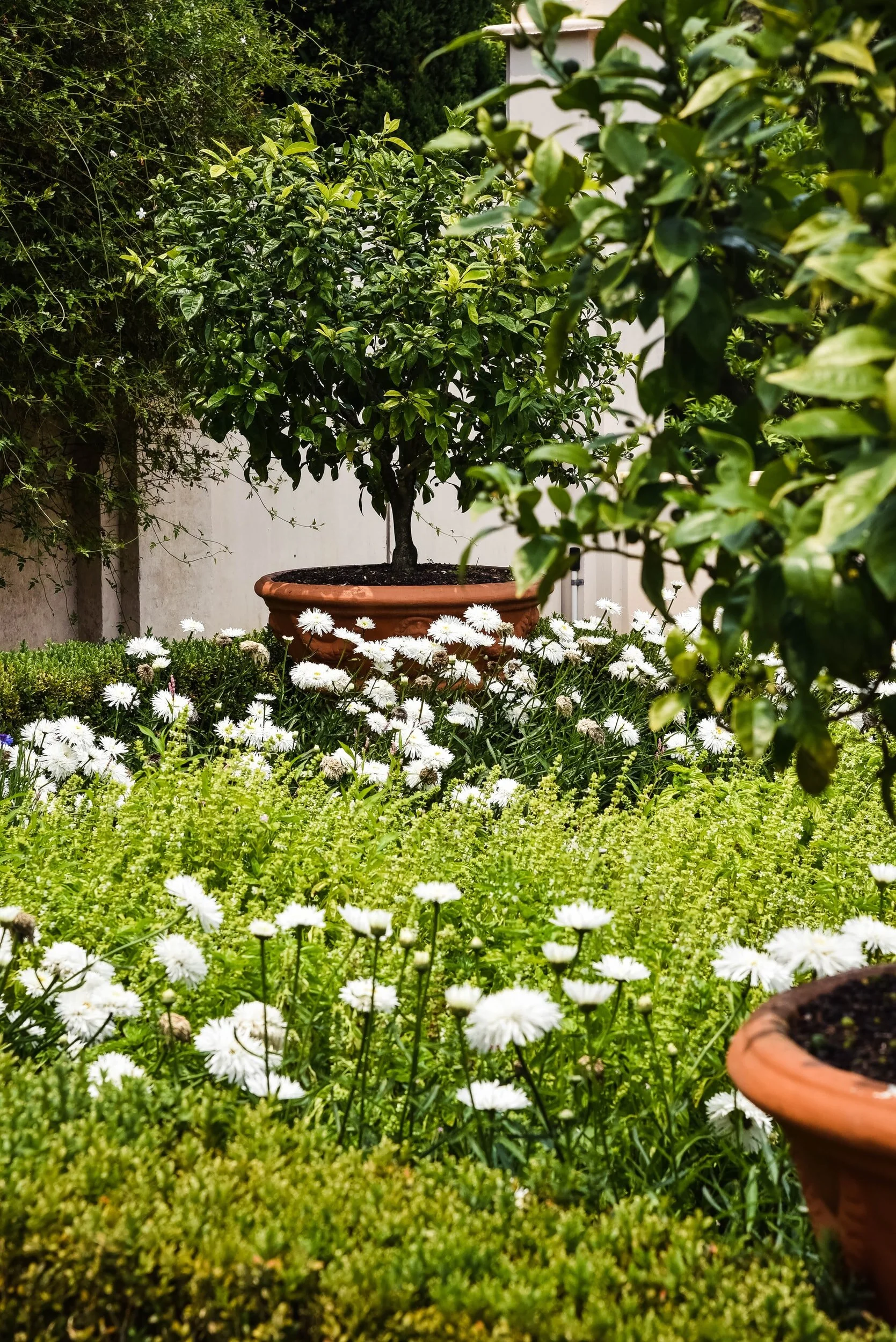Raingardens
A raingarden is full of plants, flowers, shrubs and trees. They play an important role in improving our suburbs and local environment.
Unlike ordinary gardens, raingardens are specially designed to attract and absorb rain that falls on our roads and streets.
Water is directed into the raingarden so it can be taken up by thirsty plants. This helps them to grow healthy so they can provide shade for us and habitat for local wildlife.
Any excess water not needed by the plants trickles through various layers of soil, pebbles and rocks. This natural process removes pollutants out of the water so it’s cleaner when it enters the stormwater system.
Raingardens help to reduce local flooding, plus they can lower local temperatures during hot weather. A study we conducted in 2018 (page 33), showed that raingardens in Leader Street, Forestville were cooler than nearby hard surfaces without vegetation. We also found that irrigated grass and trees have a significant cooling effect. So, ensure to water your garden a few days before a heatwave to gain some cooling benefit.
A raingarden in Flora Terrace, Prospect
Raingardens are also called ‘biofiltration’ or ‘bioretention’ systems’. ‘Bio’, meaning plants and vegetation, slow the flow of water and use it to grow. ‘Filtration’, the water filters through into the layers below. ‘Retention’ means the water stays there, available for future use.
All systems function the same, however, some have trees, some only small plants, while others have many layers underneath, or, are part of a bigger wetland system.
see them in action!
The Randolph Avenue raingardens provide additional green space for residents, while improving urban stormwater and the quality of water entering Adelaide’s coast. There are ten raingardens, totalling 146m.
Some other locations you can visit include Waymouth Street, Adelaide and Ninth Avenue, Joslin and St Peters.
No rain today? No problem! See how a raingarden works in real life by visiting the Adelaide Sustainability Centre’s demonstration raingarden - complete with a shower-head to ensure there is ‘rain’ at the turn of a handle!
Learn more about raingardens
Raingarden example and overview
Cross section model of a raingarden
Raingardens and traffic management
Maintenance and guidelines for raingardens
Resources
How to make a raingarden - Good Living
Make every drop count by setting up a raingarden in your backyard. Here’s how it works and how to get started.
Raingardens in your backyard - Water Sensitive SA
Learn how to build a raingarden, with tips to ensure it is successful!







